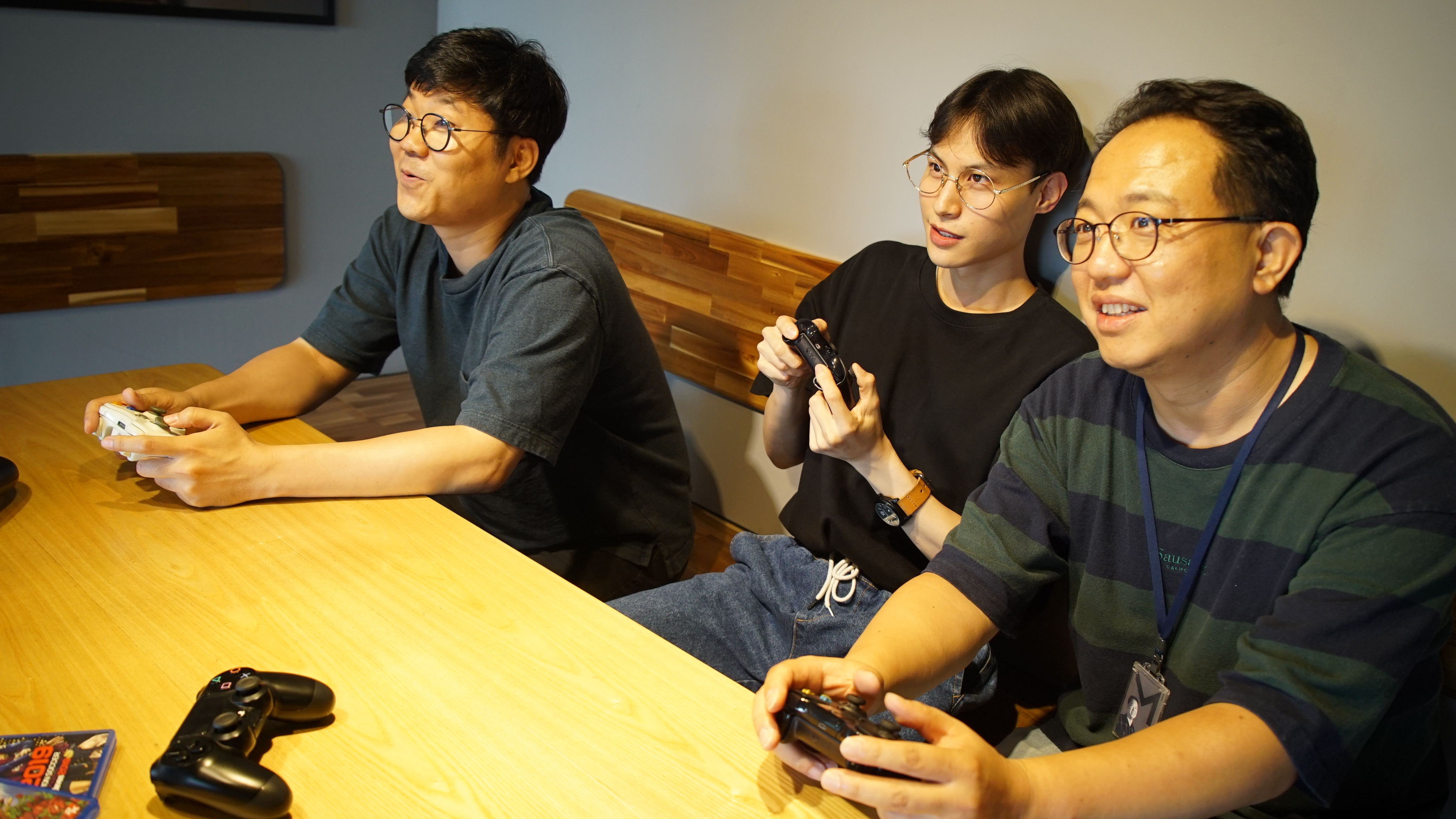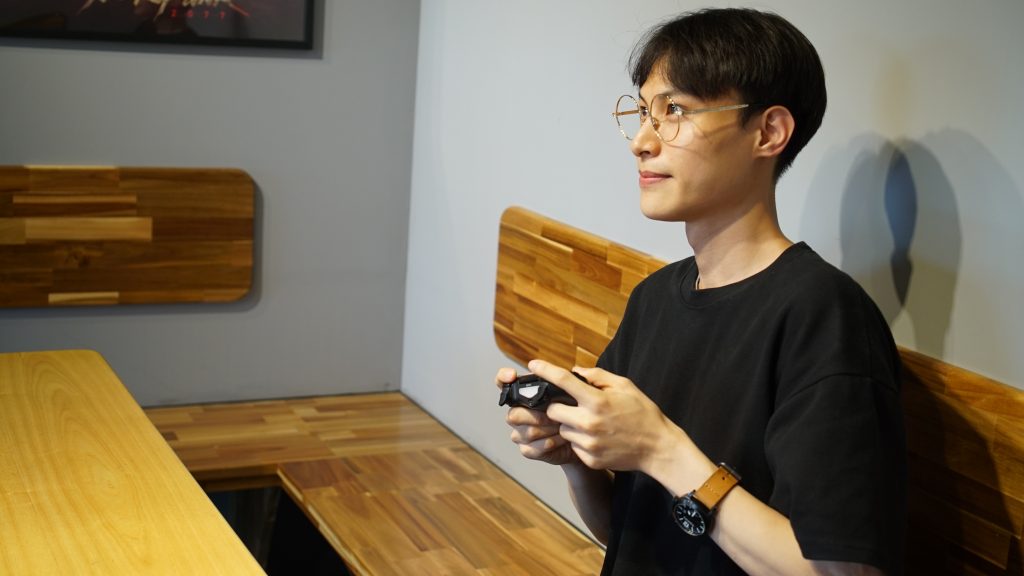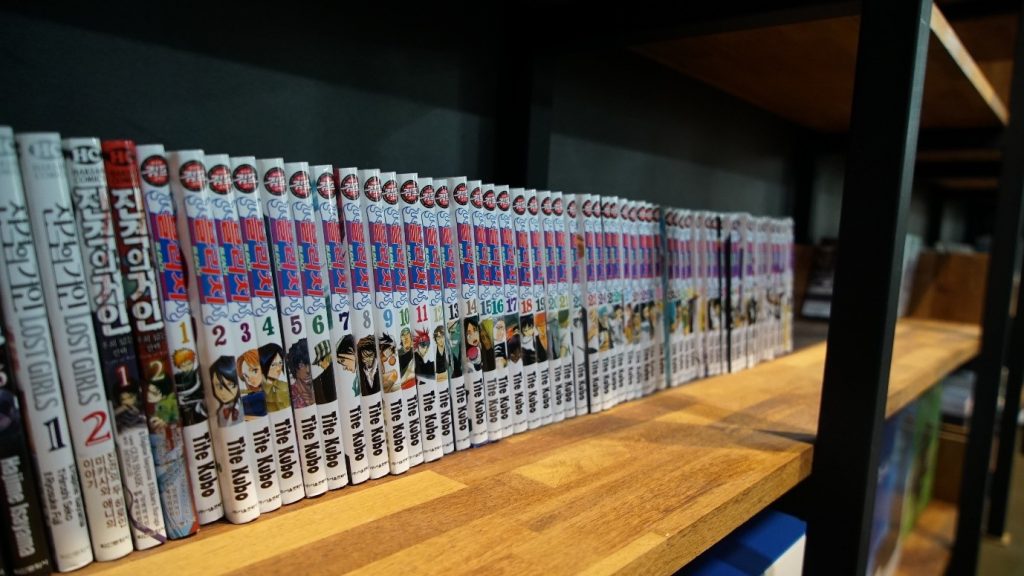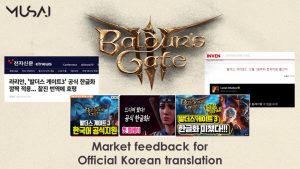[MUSAI] Do we have to do the familiarization process?

2020-08-03
Familiarization, isn’t it just playing the game for fun?
There are tons of steps for the localization of game content, but the schedule is not always favorable. You may be easily tempted to skip some of them and look thoroughly the list of localization process to save the time. Your eyes are caught by the section of ‘Familiarization’ and think “Do I really have to keep the familiarization process? Isn’t it just playing a game for fun?”
What is the familiarization process?
Familiarization (also called ‘Game playthrough’) may look like just playing a game but it is more important than it looks like. It’s a process that allows the localization team who will be in charge of the game to get a feel for it before they get into the actual work. The familiarization process requires time from 3 days to a month depending on the size of project and the data provided. If all the related data such as a playable build and background document are provided, it commonly takes about 3 to 5 days. However, there are more cases with a lack of data, so the process is completed in 1 or 2 days.
The staff who should be involved in familiarization are translators, reviewers, and project managers. Especially, translators and reviewers should analyze all materials thoroughly. It may be difficult for the external translators to take a part in it because of the security and cost issues. In this case, the internal translator or reviewer play through the game first and share the summary of the content with them. If the information cannot be shared in advance, the internal lead linguist answers the queries from the external translators during the translation phase.

What kind of data is needed for familiarization?
Any data provided from the client will be helpful, but mostly the following data is required for familiarization.
- A playable build is the best for familiarization (with cheat codes, game money and, etc.)
- Gameplay movies if the build is not available. (cinematic movies at least)
- Game planning materials such as story outlines, character bios, and screenshot, etc.
- In-game text and audio script which is going to be localized
- Other reference media
- In the case that the game was created based on other IPs like movies, animations, comics, novels, other platform games (e.g. TCG), etc.

[Photo 2] The comics and novels for familiarization on display at Musai Studio (Source: Musai Studio) There are many comics and novels on display at Musai Studio, and these are all traces of the familiarization process. They are also helpful during the translation phase as a reference. (Plus, they are used as ‘pleasure after work’ for Musai staff after the project is completed.)
- In the case that the game creators are inspired by other media
The latest example is ‘Call of Duty: Modern Warfare’ which Musai worked on last year. The client-side shared the information that the game was made from the inspiration by several realistic action movies such as ‘SICARIO’ and ‘Zero Dark Thirty’. Musai staff who were in charge of the title actually watched and referred them during the dubbing session.

[Photo 3] The movies inspired the creator of “Call of Duty: Modern Warfare” (Source: Netflix homepage)
- In the case that the game was created based on other IPs like movies, animations, comics, novels, other platform games (e.g. TCG), etc.
What is the advantage of familiarization?
Not only improvement of the quality, but also productivity!
Firstly, familiarization can make the translation quality improved through in-depth understanding of the game. Besides, translators can reduce the difficulties encountered by the lack of understanding of each context and save the time. This leads to the overall productivity enhanced as well.
In reality, it’s true that translation agencies are suffering from both the fast turnaround pressure and insufficient time to translate. It’s understandable that project managers get tempted to eliminate familiarization (if there’s no data), but we strongly believe that familiarization will be helpful for the entire process for your project.
Enjoy the game as a gamer, not as a translator!
Most of the game localizers love games. However, once the project is started, they can’t help but seeing the game as a task. That’s why the familiarization process is valuable for them to approach the game as a gamer before starting the tough journey under a pressure of schedule. It’s also a chance to get the perspective of a player such as ‘This part is important for the story flow‘, or ‘This dialogue should be translated in a specific style for immersion’. If it’s a game with the genre or IP which the localizer has preferred, a great synergy will be generated. That’s why the preference and interest of staff are considered as important factors for allocation of task and team.
Why we can’t apply the familiarization process to the actual process?
We look through all the benefits of familiarization in many aspects so far. However, it’s very hard to allocate much time for it in the actual localization process. Why?
Insufficient resources to familiarize
To meet a global launch, there are many cases that the localization process gets started at the low level of development. In this case, there is little data available to be provided for familiarization and the bigger problem is that familiarization can be meaningless because too many changes will be happened later. For the other reason, only limited data can be shared since most of the resources are confidential due to the security policy of the game developer.
Budget
The Familiarization process usually appears in the RFP stage, but it disappears in the quote stage because it is generally recognized as a job that should be done free of charge. Thus, it is difficult for a BDM from translation agencies to ask to pay for it first except the case their customers mention it. Since the budget is not set for the process, the localization agency may count it as “a process if possible” rather than “an essential process.”
As for us, Musai Studio tries to do familiarization as much as possible if the data is secured regardless of the cost. It’s because we recognized the evident difference in quality when we do the familiarization process and not.
Most translation agencies know the benefits of familiarization but tend to hesitate because it looks like taking too much time and effort under a tough schedule. In addition, some of the management in the agencies may feel uncomfortable to see their staff playing a game instead of translating or reviewing at work. However, while the staff play with the game, it allows them to breathe during the process of the project, thus bringing better quality to your project as we explained.
Furthermore, we’d like to recommend you guaranteeing some time for your translation agency to do familiarization even though it’s not possible to pay for it. It is very helpful for them to be secured the schedule for familiarization whether they are paid or not.

People in the gaming industry are mostly gamers who love games, no matter where they are involved in. Especially for game localizers, familiarization is probably a stage which getting in a deep affection for the game. We are sure that the creative and user-friendly translation can be created from the affection. We hope this article give you the chance to think about the importance of the familiarization.
** Did you enjoy the news of Musai? Please click subscribe and share the story.
BOOST YOUR PLAY! Musai Studio









